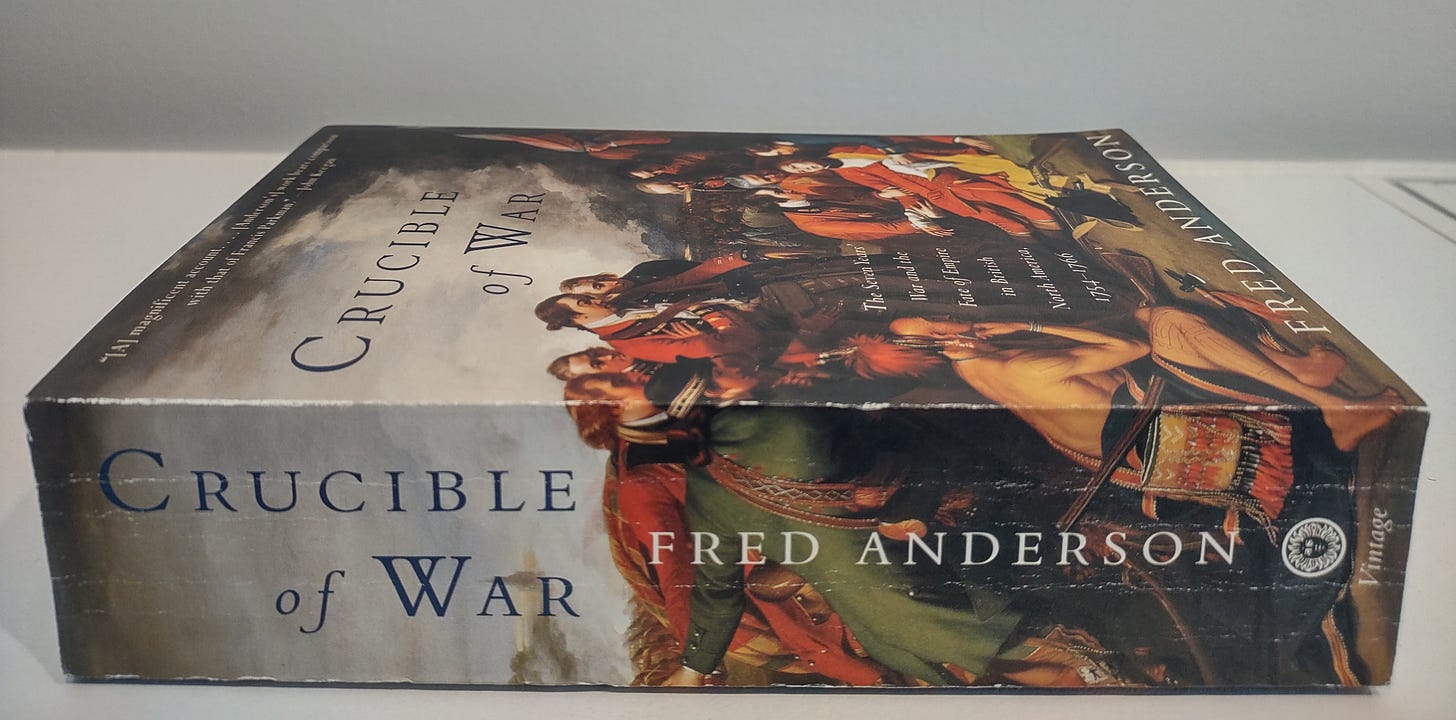Hindsight suggests that the American Revolution was inevitable, but history is never that simple.
In Crucible of War, Fred Anderson offers a comprehensive account of 1754–1766, during which the British and French fought the Seven Years’ War (including the French and Indian War). Anderson presents these years not as some prequel to the American Revolution—this is no U.S. Wars, Episode I: The Phantom Menace. Rather, he attempts to understand how the contemporaries of the era perceived events in real time. Amateur though I am in this field, I think he succeeded and then some.
In his introduction, Anderson writes:
“No matter how strenuous their other disagreements, most modern historians have looked at the years after 1763 not as contemporary Americans and Britons saw them—as a postwar era vexed by unanticipated problems in relations between colonies and metropolis—but as what we in retrospect know those years to have been, a pre-Revolutionary period. By sneaking glances, in effect, at what was coming next, historians robbed their accounts of contingency and suggested, less by design than inadvertence, that the independence and nationhood of the United States were somehow inevitable.” [emphasis in original]
Understandably, the Revolutionary era looms large in our national consciousness. I’ve often gravitated toward books that cover that period. So, I appreciate Anderson’s efforts to fill in the details of what happened right before those pivotal years.
And he indeed goes into tremendous detail. Crucible of War is a hefty book that spans continents and cultures. As Anderson says, “To begin the story in the 1750s would require the inclusion of many more actors, for Indians would be anything but the incidental players they seem in accounts that look ahead to the Revolution.”
The Seven Years’ War comes across as the true first world war, and I feel I need to read this book a second time to properly absorb its full scope. The narrative sprawls, but it sprawls in an interesting and necessary way.
I’ll likely revisit Crucible of War at some point down the line, but don’t wait for me—go ahead and read it when you’re in the mood for a big book.





